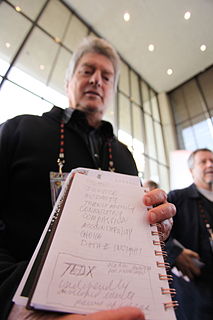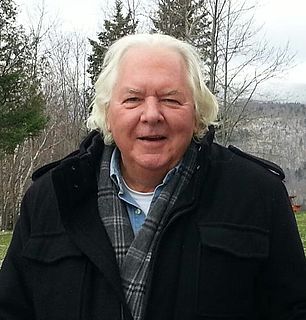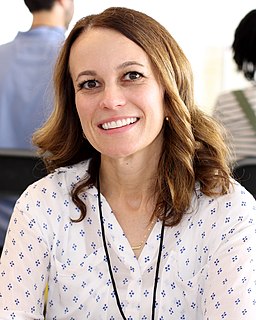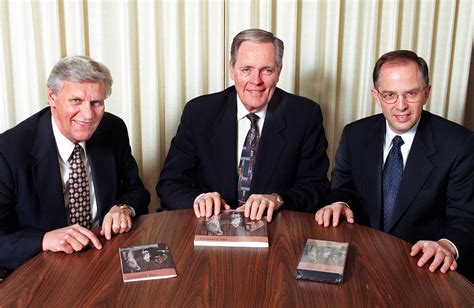A Quote by Maggie Stiefvater
...the sound of our lack of conversation amplified by the echo of our footsteps on the stone around us.
Related Quotes
The harmony that holds the stars on their courses and the flesh on our bones resonates through all creation. Every sound contains its echo. Before there was humankind, or even forest, there was sound. Sound spread from the source in great circles like those formed when a stone is dropped in a pool. We follow waves of sound from life to life. A dying man’s ears will hear long after his eyes are blind. He hears the sound that leads him to his next life as the Source of All being plucks the harp of creation.
Our national purpose, not our party differences, must define the American Brand. We must change the conversation from one centered around what defines our differences to one that hangs a lantern on what binds us, supports our collective well being and makes us all stronger and more productive as a result.
The Conversation about women’s bodies exists largely outside of us, while it is also directed at and marketed to us, and used to define and control us. The Conversation about women happens everywhere, publicly and privately. We are described and detailed, our faces and bodies analyzed and picked apart, our worth ascertained and ascribed based on the reduction of personhood to simple physical objectification. Our voices, our personhood, our potential, and our accomplishments are regularly minimized and muted.
The principle of self-reliance grows out of a fundamental doctrine of the Church, that of agency. Just as each individual is accountable for his choices and actions in spiritual matters, so also is he accountable in temporal matters. It is through our own efforts and decisions that we earn our way in this life. While the Lord will magnify us in both subtle and dramatic ways, he can only guide our footsteps when we move our feet. Ultimately, our own actions determine our blessings or lack of them. It is a direct consequence of both agency and accountability.
Writing, painting, singing -- it cannot stop everything. Cannot halt death in its tracks. But perhaps it can make the pause between death's footsteps sound and look and feel beautiful, can make the space of waiting a place where you can linger without as much fear. For we are all walking each other to our deaths, and the journey there between footsteps makes up our lives.
To lack confidence is to have feelings of low self-worth. We are preoccupied with our weaknesses, and we lack faith in the Lord's ability to use those weaknesses for our good. We do not understand our inestimable worth in the eyes of God, nor do we appreciate our divine potential. Ironically, both pride and a lack of self-confidence cause us to focus excessively on ourselves and to deny the power of God in our lives.
We study health, and we deliberate upon our meats and drink and air and exercises, and we hew and we polish every stone that goes to that building; and so our health is a long and regular work. But in a minute a cannon batters all, overthrows all, demolishes all; a sickness unprevented for all our diligence, unsuspected for all our curiosity, nay, undeserved, if we consider only disorder, summons us, seizes us, possesses us, destroys us in an instant.
God is at the tip of our scalpels, our screwdrivers, our computer terminals, our dust rags, our vacuum cleaners, our pencils and pens. He is with us in our wheelchairs, or on our hospital beds, when all we can do is sit or lie flat. When we envision Him and His purpose in what we do, then we begin to grow aware of His presence in the middle of it. We are able to engage in our inward conversation with Him as we work, naturally, without strain. He becomes our partner, our collaborator.
No, the secret is that there's no reward and we have to endure our characters and our natures as best we can, because no amount of experience or insight is going to rectify our deficiencies, our self-regard, or our cupidity. We have to learn that our desires do not find any real echo in the world. We have to accept that the people we love do not love us, or not in the way we hope. We have to accept betrayal and disloyalty, and, hardest of all, that someone is finer than we are in character or intelligence.
Notice how people can sit for hours and talk to one another, but call us to pray and we find it to be great difficulty. Why is this so? 1) Lack of desperation (realizing our dependence on God), 2) The wrestlings of the flesh, 3) Lack of faith to believe not only that God hears us but that He will move on our behalf.



































